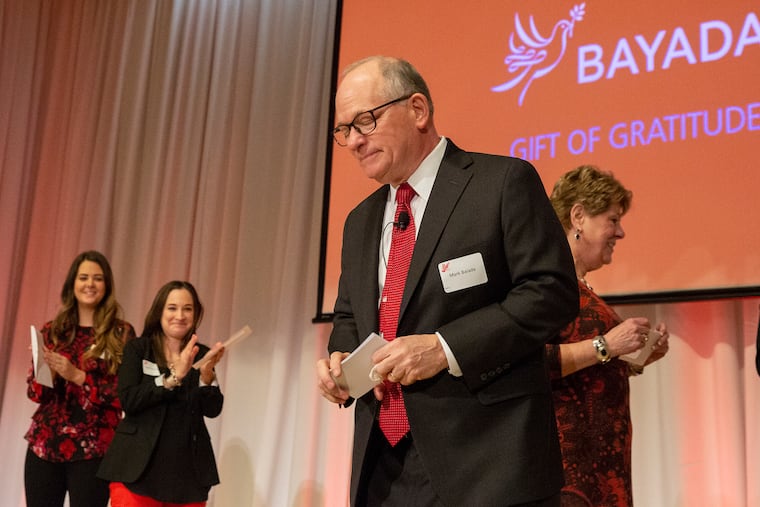Bayada settles whistleblower’s False Claims Act suit for $17 million
The Moorestown nonprofit denied doing anything wrong.

Bayada, a national home health care company based in Moorestown, agreed to pay $17 million to settle allegations of illegal kickbacks in exchange for patient referrals, U.S. Justice Department officials said Wednesday.
A whistleblower suit filed in New Jersey in 2017 alleged that three years earlier Bayada had acquired two home-health agencies in Arizona from an operator of retirement communities to induce referrals of Medicare beneficiaries for home health services at the seller’s retirement facilities nationwide.
Details of the alleged kickbacks — from early 2014 until October 2020 — were not available because the original lawsuit remained under seal Wednesday. It is sealed because of allegations against other entities, the Justice Department said.
Violations of anti-kickback law do not have to involve discrete payments. “The prohibition extends to asset purchases that are intended to induce referrals,” the Justice Department said.
Bayada, which converted from a for-profit company to a nonprofit in 2018, denied the allegations in a statement and opted to settle “to avoid the significant expense of protracted litigation and allow our focus to remain on providing high quality home health care to our patients.”
The company had $1.5 billion in revenue in 2019, according to its 990 tax return. It operates in 22 states and employs 26,000, including overseas.
Bayada’s civil settlement is not an admission of liability, Justice Department said.
“When healthcare providers make or induce referrals that are based on kickback arrangements rather than the best interests of patients, they risk patient harm, threaten the integrity of federal healthcare programs, and violate federal law,” acting U.S. Attorney for New Jersey Rachael Honig said in a news release.
“The U.S. Attorney’s Office for the District of New Jersey and our partners in the Department of Justice and at [Health and Human Services-Office of Inspector General] will continue to pursue those who, like Bayada, offer kickbacks for patient referrals, no matter the disguise those kickback arrangements might wear.”
The name of the senior living company that sold the home-health agencies to Bayada was redacted in the settlement agreement.
An April 2014 report in BizTucson said Bayada acquired Watermark at Home that year. Watermark Retirement Communities, which is based in Tucson, has 59 locations, according to Watermark’s website, including those in Blue Bell, Media, Philadelphia, West Chester, and Wilmington.
Asked for a comment, a Watermark spokesperson said: “We are unable to participate in your article at this time.”
The whistleblower, David Freedman, will receive $3.06 million of Bayada’s $17 million payment.
Freedman, who was Bayada’s director of strategic growth from 2009 to 2016, filed a second whistleblower lawsuit against Bayada in 2019. The U.S. government also joined that lawsuit, which centered on Bayada’s undisclosed payment to a lobbyist to help it purchase Ocean County’s home health agency in 2014.
Freda L. Wolfson, U.S. Chief District Judge for the District of New Jersey, dismissed that case in May, determining that the allegations did not fall under the federal False Claims Act, but suggested that as stated they may have violated state law.